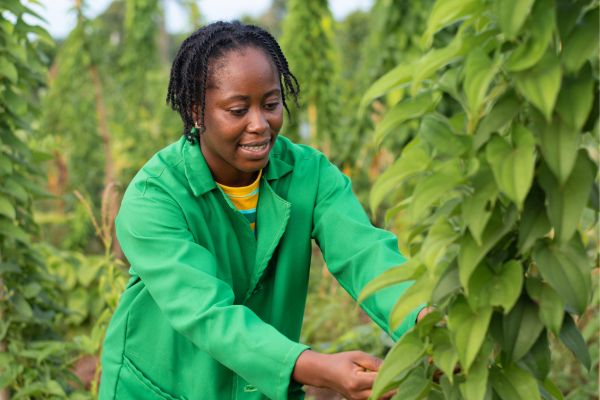Deadline: 27-Oct-23
UN-Habitat is seeking expressions of interest to implement a project in Uganda aimed at improving tenure security and land use planning for men, women, and youth on customary land, in a participatory way in the Southwestern and West Nile regions.
The purpose of the Call for Expression of Interest is to solicit interest from national not for profit rural civil society organizations or universities as implementing partners that wish to participate in UN-Habitat operation and contribute complementary resources (human resources, knowledge, funds, in-kind contributions, supplies and/or equipment) to achieving common objectives as outlined below.
The project will support the development of a tenure responsive land use plan that integrates both refugee and host communities for one sub-county in West Nile region. West Nile is one of the predominately refugee hosting regions in Uganda, therefore, the project interventions will aim to improve land tenure security and land use for both refugee and host communities. The project will also support capacity development of institutions and individuals responsible for customary land registration and land use planning.
The project goal will be achieved through the following specific objectives:
- Improved tenure security for men, women, and youth.
- Sustainable, climate-smart, and inclusive land use planning.
- Improved capacity and awareness of key land stakeholders on customary land registration and land use planning.
Funding Information and Duration
- Anticipated start date: 1st December 2023
- Maximum proposed value in US$:490,000
- Estimated duration of project in calendar months: Eighteen (18) months
Main Outputs and Activities
- In close collaboration with UN-Habitat and GLTN Secretariat, Government authorities (MLHUD and JLOS), district and cultural authorities, and other land stakeholders, the Implementing Partner will be undertaking the following key interventions and activities, but not limited to:
- On Land Tenure Security:
- To mobilize local communities to be project partners in addressing tenure insecurity issues.
- To identify and work with change agents in improving tenure security of smallholder farmers in select sub counties in Kabale and Adjumani districts.
- Identify appropriate tools and adopt them to improve land tenure security on customary land.
- Support communities to apply for Certificates of Customary Ownerships (CCOs).
- Expected Result: Improved tenure security for at least 10,000 smallholder farmers including men, women, and youth.
- On Land Use Planning:
- Mobilize local communities to be project partners in addressing land use issues.
- Identify appropriate tools and adopt them to ensure sustainable and inclusive tenure responsive land use planning.
- Identify and work with change agents in improving land use planning in a selected sub-county in Adjumani district.
- Develop a tenure responsive land use plan that incorporates both refugee and host communities as per legal and government requirements for one selected sub-county in Adjumani district in a participatory way.
- Expected Result: Sustainable, climate-smart, and inclusive land use planning with one tenure responsive land use plan for one sub-county developed in Adjumani district.
- On Awareness Building and Capacity Development:
- Undertake stakeholder mapping and analysis.
- Develop & disseminate knowledge and awareness materials.
- Customize Social Tenure Domain Model (STDM) and other prioritized GLTN tools.
- Implement selected GLTN’s fit-for purpose and gender responsive land tools and approaches.
- Expected Result: Improved capacity and awareness of key land stakeholders on customary land registration and land use planning in at least 16 sub-counties in Kabale and Adjumani districts.
- On Programme Management and Coordination:
- To ensure effectively working arrangements with government and traditional authorities and other relevant land stakeholders and institutions and forge partnerships at various levels.
- Administer feedback mechanisms.
- To prepare progress and monitoring reports including financial reporting
- To document and disseminate key interventions, good practices and lessons learned.
- Expected Result: Efficient and effective project management and coordination.
- On Land Tenure Security:
Locations
- Three (3) agro-production zones in Uganda, namely, Zone 1: South-western Uganda (Potato production area), Zone 2: The Kyoga Plains (Lowland rice production area) and Zone 3: Mt. Elgon Region (Potato and upland rice production area). In addition, the project will also work in one selected district in the West-Nile region of Uganda.
- Specific Location Sites for this Call for Proposal
- Kabale District in Southwestern region.
- Adjumani District in West Nile Region
- Specific sub-counties to be agreed upon.
Eligibility Criteria
- Lead Organization Unit: Land, Housing and Shelter Section, Urban Practices Branch.
- Organizations have the relevant experience and proven track record in implementing activities in the areas of the project.
- Organizations have qualified technical staff with the experience and the technical skills required by the project.
- Organizations have a clear and strong link with an identifiable constituency relevant to the targeted population of the project.
- Organizations posses adequate physical facilities, office equipment, transport, etc. to implement the activities.
- Organizations have formal procedures to monitor project execution (e.g., milestones, outputs, expenditures).
- Organizations have been in operation over a period of at least 2 years to demonstrate its financial sustainability and relevance.
Notes
- Interested Organizations must provide information indicating that they are qualified to perform the services (brochure, description of similar assignments, experience in similar conditions, availability of appropriate skills among staff, etc.).
- Organizations will be selected in accordance with the procedure set out in the UN-Habitat IP Management policy and Standard Operating Procedures.
For more information, visit UN-Habitat.
